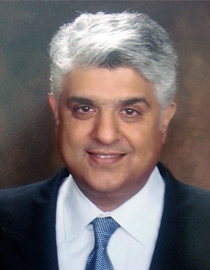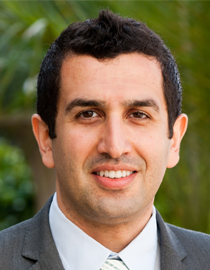 |
 |
| Balakrishna Haridas | Roozbeh Jafari |
Balakrishna Haridas, a biomedical engineer with 24 years of experience in development of products for minimally invasive laparoscopic and endovascular surgery, and Roozbeh Jafari, a biomedical engineer whose research focuses on wearable computer design and signal processing, have joined the Department of Biomedical Engineering at Texas A&M University.
In addition, both faculty members will serves as researchers within the Texas A&M Engineering Experiment Station’s (TEES) Center for Remote Health Technologies and Systems.
Haridas is professor of practice within the department and head of entrepreneurship programs for the TEES Division of Entrepreneurship & Commercialization. Prior to joining Texas A&M, Haridas was director of the Medical Device Innovation & Entrepreneurship Program, the Master of Engineering program, and associate professor of biomedical engineering at the University of Cincinnati.
Projects in Haridas’ lab include collaboration with Cincinnati Children’s Hospital aimed at developing a viable replacement for neonatal/pediatric trachea as a treatment for congenital tracheal stenosis. This same technology also is being engineered to serve as a tracheal repair/replacement implant for adult patients who have airway injury as a result of blunt or penetrating trauma or cancer.
Another new research project in his laboratory is in the development of biomaterials/synthetic matrices and minimally invasive delivery systems for endoscopic repair of gastro-intestinal perforations that result from trauma, cancer, chronic ulcers and other related pathologies. Haridas has directed research and product development projects exceeding $70 million, with funding from the National Science Foundation (NSF), National Institutes of Health, industry, the NSF SBIR program, and venture capital sources with a total product impact of $2 billion during his career.
Haridas received his Master of Science in engineering mechanics from the University of Alabama and his Ph.D. in biomedical engineering from the University of Cincinnati.
Jafari is associate professor in the departments of Biomedical Engineering, Computer Science and Engineering and Electrical and Computer Engineering at Texas A&M. His research focuses on wearable computer design and signal processing with applications in health care, wellness and enhancing productivity and safety of the users. His research has been funded by the National Science Foundation, National Institutes of Health, the U.S. Army's Telemedicine & Advanced Technology Research Center, the U.S. Air Force Research Laboratory, the Air Force Office of Scientific Research, The Defense Advanced Research Projects Agency, SRC and industry.
Jafari received his Master of Science and Ph.D. in computer science from the University of California, Los Angeles prior to serving in a postdoctoral position in electrical engineering and computer sciences at the University of California, Berkeley.
About the Center for Remote Health Technologies and Systems (CRHTS)
The Center for Remote Health Technologies and Systems is designing and developing advanced health technologies and systems to enable healthy living through health monitoring and disease diagnosis, management and prevention. The center’s mission is to identify and overcome the unmet needs of patients and health care providers through the development of breakthrough remote health care devices, biosignal mapping algorithms, remote health analytics and information systems that will improve access, enhance quality, and reduce the cost of health care.
About the Texas A&M Engineering Experiment Station (TEES)
As an engineering research agency of Texas, TEES performs quality research driven by world problems; strengthens and expands the state’s workforce through educational partnerships and training; and develops and transfers technology to industry. TEES partners with academic institutions, governmental agencies, industries and communities to solve problems to help improve the quality of life, promote economic development and enhance educational systems. TEES, a member of the Texas A&M University System is in its 100th year of engineering solutions.